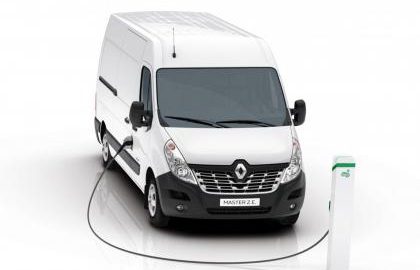An electric van could be the perfect opportunity to cut running costs, but do they make sense for your business? We look at the key issues
There’s something of a revolution going on in the UK van market. While diesel definitely isn’t dead, manufacturers are branching out to provide alternative fuels for buyers. That means petrol vans are making a comeback, while hybrids are in the pipeline, too. But perhaps the most intriguing option that’s available in the UK today is the electric van.

If you need a van to keep your business moving, then the running costs for that vehicle will be a key factor in your monthly outgoings. While the latest diesel vans can deliver running costs on a par with large MPVs that will help to reduce your running costs, there is another way to help slash your outgoings, and that’s by plumping for an electric van.
Battery range
The distance that you can travel on a single charge is going to be a major factor in deciding whether an electric van is right for you. At the moment, the two leading electric vans on sale in the UK are the Nissan e-NV200 and Renault Kangoo ZE. As both models use a similar electric drive system, they both have a claimed range of up to 106 miles.
Charging
The second major factor when evaluating electric van ownership is whether you have the ability to charge it up. The first thing you need is a convenient place to park the van so that you can access a charging point, whether it’s in a garage or an off-street parking space near an electricity supply.

The best way to charge a van is by using a wall box, as this can deliver a faster charge than if you plug into a conventional plug socket. Do this, and whenever you leave your van parked up overnight, you can plug it in and have a fully charged van ready to go in the morning.
Payload
Adding weight to any van has a negative effect on energy consumption, whether it’s powered by a diesel engine or an electric motor. However, just because a van runs on electricity, it doesn’t mean it’s any poorer at carrying big loads.
Price
One area where electric vans are competitive is on list price, and that’s because the Government’s Plug-in Van Grant is bigger than it is for electric cars. You can get £8,000 off the list price of an electric or hybrid van that is able to travel at least 10 miles on zero emissions electric power alone. That means the Nisan e-NV200 starts from around £15,000, which is about £400 less than the NV200 with a 1.5 dCi diesel.
Running costs
Another factor to consider is the overall running costs of an electric van. While you’ll never be at the mercy of fuel station prices, you won’t be accessing free energy. If you’re charging a van overnight, then the cost is estimated to be around £1.50 to fully charge a flat battery. As a rough estimate, you’d need to spend around £15 on diesel to cover 100 miles, so the savings an electric van can deliver are plain to see. If you’re registered as a company, you should also be able to write off some of your household energy bills against VAT, as the energy used to recharge your electric van is a legitimate business cost.
Read more: Auto Express
